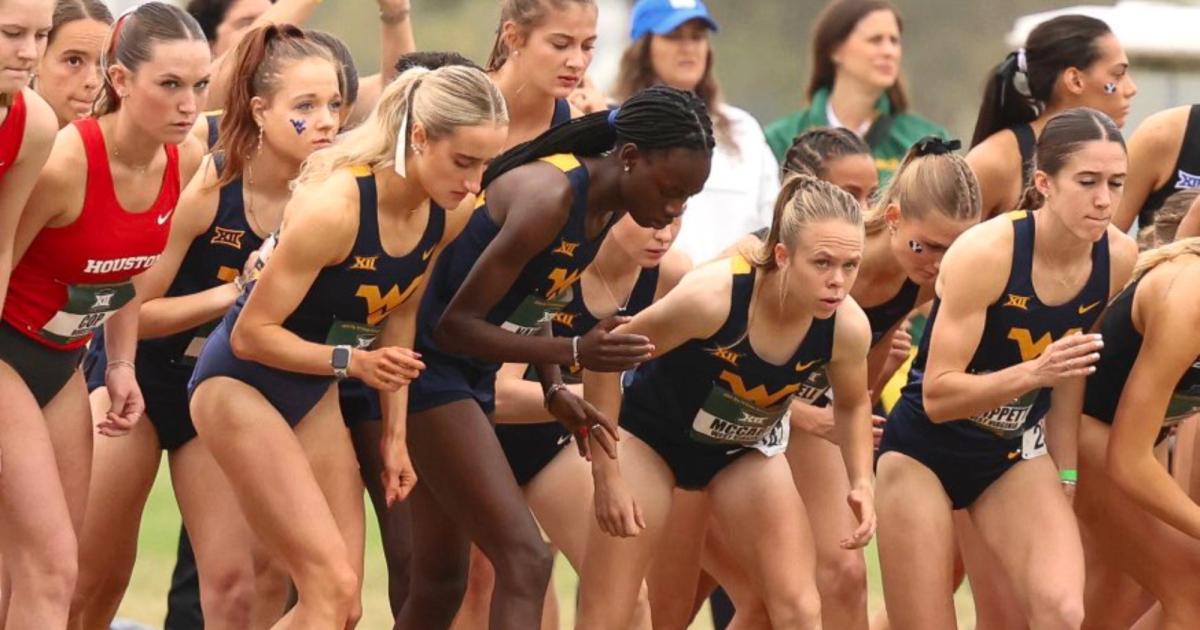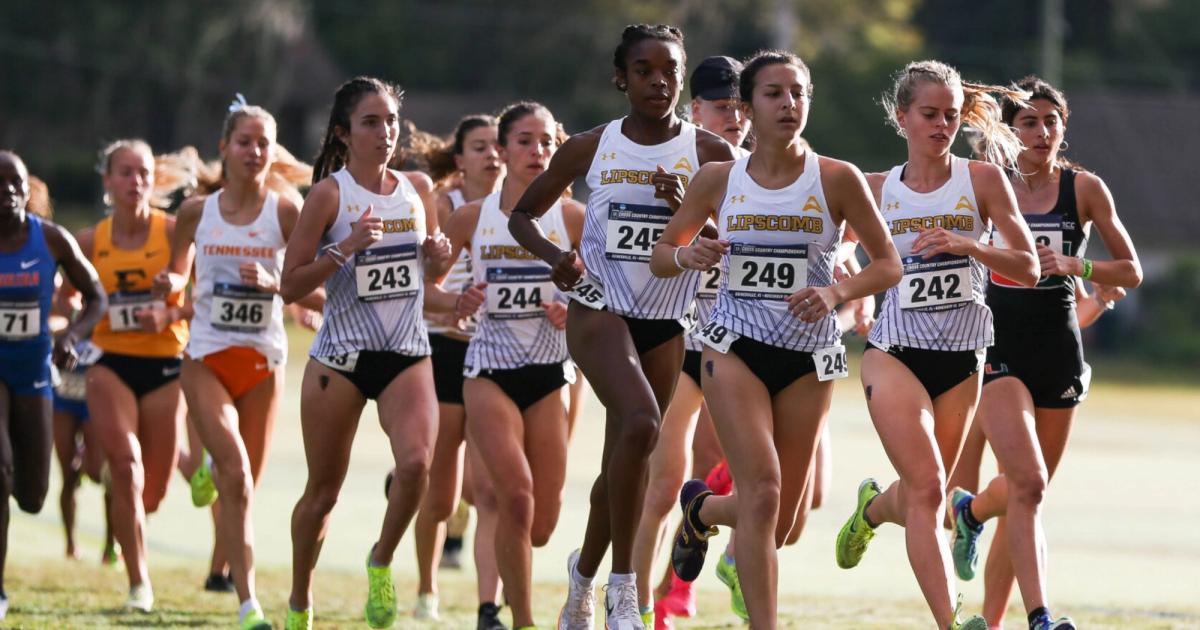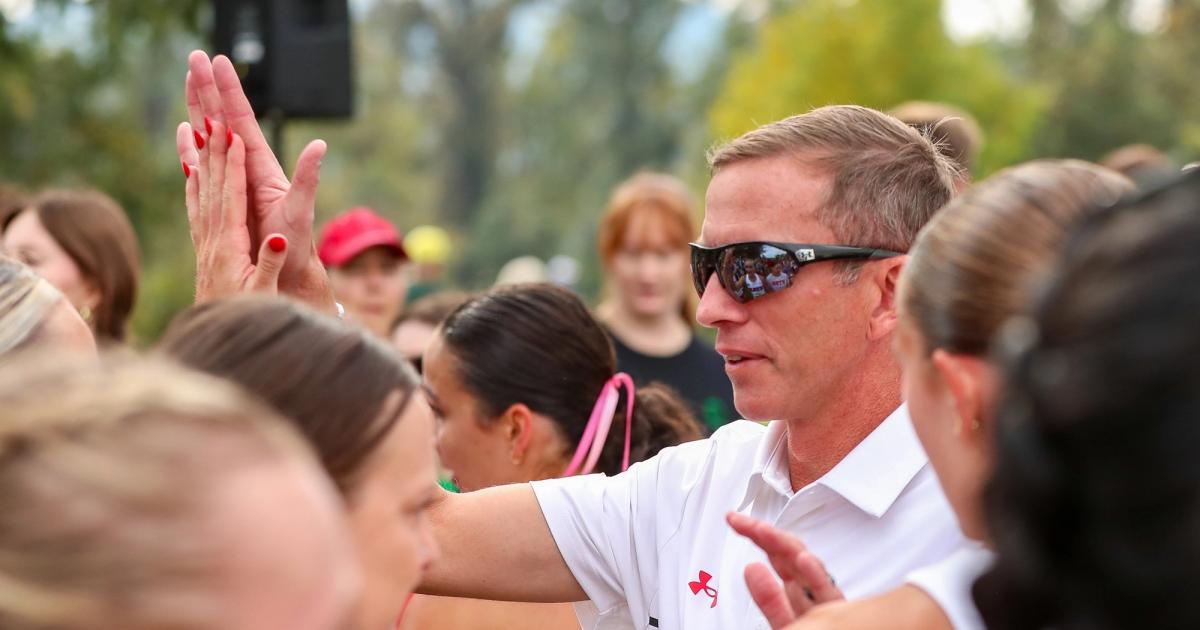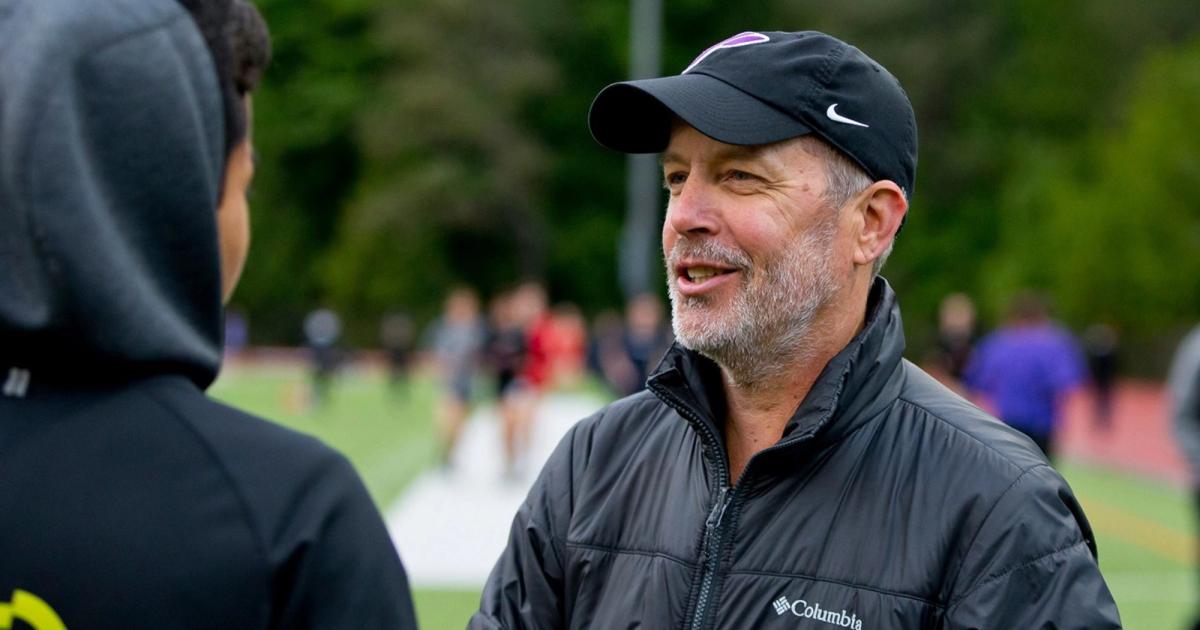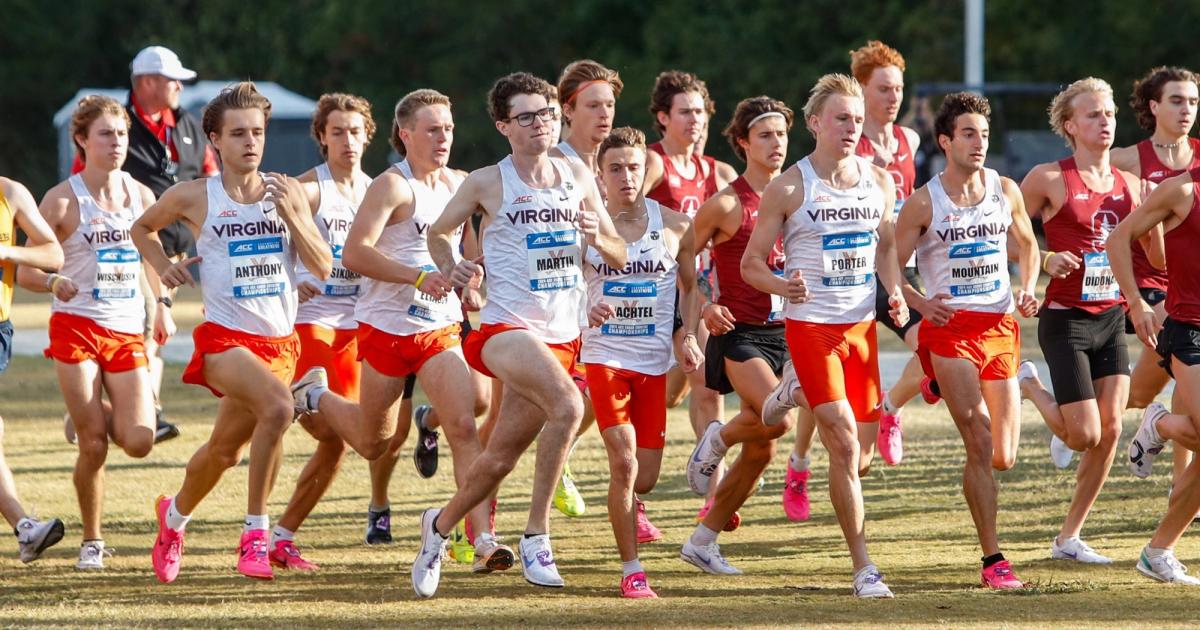By Jasmine Fehr
November 19, 2024
"I'm never going to quit on somebody here at West Virginia. I will stick with them for the duration of their career and they know that. I think that's comforting."
Sean Cleary, Head Coach of Cross Country and Track at West Virginia University, joined us for our final coach spotlight ahead of the NCAA Cross Country Championships this Saturday. Cleary has been at the helm of West Virginia’s program for 18 years, following a tenure as an assistant coach and his own time as a student-athlete, graduating in 1992.
In our interview, Cleary discusses his approach to structuring training, the importance of supporting his athletes, and how he creates a positive team environment. He also shares his perspective on the widening resource gap between college programs and reflects on Ceili McCabe’s development—from a promising high school recruit to a 2024 Olympian.
Cleary’s insights offer a glimpse into what it takes to build a successful cross country team both on and off the course.
This interview has been edited lightly for length and clarity.
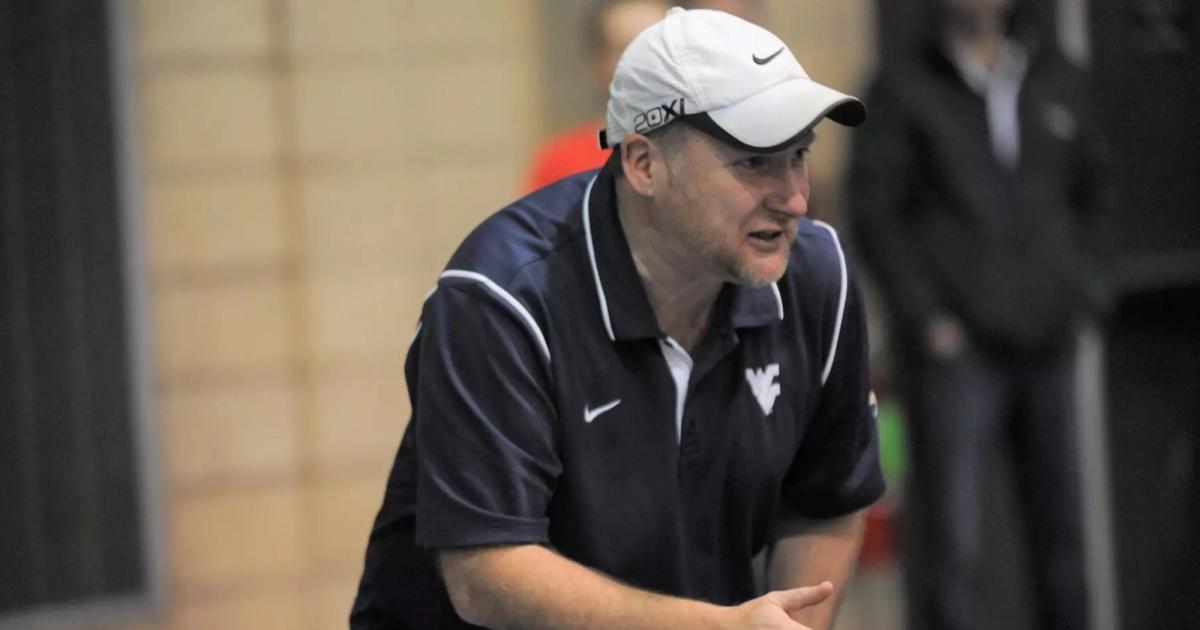
Courtesy WVU Athletics
Jasmine Fehr: To start us off, can you share what West Virginia’s program means to you and the legacy that you've been able to create?
Sean Cleary: This program is everything to me. I think I've made it past that point in my career where I would even entertain the thought of taking another job. Those of us who have coached this long have been offered some wonderful jobs over the years. And for whatever reason—my own reasons—I've chosen to stay here in Morgantown for reasons that are very dear to me. But maybe to the outside world, my best friends, they thought I was a little crazy for staying here all this time.
For me personally, I ran here in the early '90s. I was not the first Canadian here. Contrary to what some think, I had a younger teammate who was my teammate for a few years. Then I immediately started coaching the boys in 1993. So the day I graduated, I became the men's cross country and distance coach. I was very lucky—right place, right time. The job opened up, and I became their coach.
I have never left. I feel like for me personally, my level of love, the quality of my life, and the way I've been able to interact with the entire state—not just as the WVU coach—would make it hard for someone to have enjoyed their experience more than I have.
Looking ahead to this year, the women were not ranked in the first couple of weeks. Then suddenly they’re ranked 28th. Next, they move up to 4th and are looking to be a podium contender. Can you talk about that progression and the factors that led to that?
Those factors started with Ceili [McCabe] making a decision to come back to school. Maybe in her private thoughts away from me she was considering not coming back. We’ve all had our own Ceili’s–and I’ve been fortunate to have had a few Ceili’s–but she is team-first and Ceili-second. That is kind of remarkable in this day and age of NILs, going pro, and choosing to postpone that gratification for another year.
So when she made that decision, I really believe that some other women within the program saw that sacrifice and put themselves in a position to be ready this fall… Ceili was on board and felt like: “This can be the best team that I’ve run on since I’ve been at West Virginia. I definitely want to be part of that.”
We’ve got the depth. We’ve got a pack, especially with what Joy [Naukot] has shown us. And Ceili has only lost one cross country meet outside of Nationals in four years, which was this year at Pre-Nationals where she was 4th.
In the past few years, we’ve had Ceili. Now we have a solid two and three, so immediately we’re going to be a little bit better. I think they were well aware of what was coming. As for whether or not we predicted 4th at Pre-Nationals, I would be fibbing if I said we did. But I did feel we could run with a few key teams that were ranked in the top ten.
We thought we were a little over-ranked and I felt like we would fall into place with the NC State teams of the world. So whether we were 15th in the country or 5th, we knew we would fall into that category somewhere.
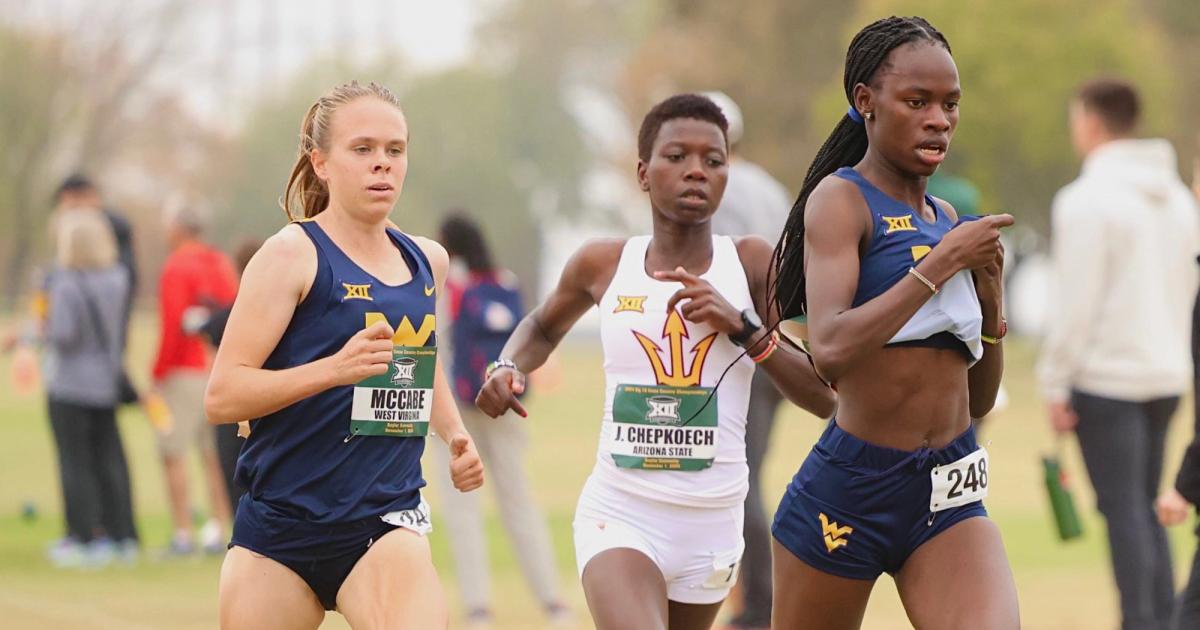
Courtesy WVU Athletics
I love what you mentioned about Ceili. She ran at the Olympics this summer and had the option to turn pro, but she’s in it for the team and wanted to come back for another year. Her returning may have motivated the team to give a little bit extra to truly make it a standout season.
Ceili is a leader in her own way. She’s not “rah-rah.” She doesn’t stand in front of the group, but when she speaks, you’ve got to listen to her. The level of commitment she trains at—you just can’t get there unless you’re all in. And Ceili is all in.
What Ceili’s done—and not to make this all about Ceili McCabe—but over the last four years, she’s really stepped up. Three years ago, Ceili was third at the NCAA Cross Country [Championships]. The summer before that, she ran summer track. A lot of people don’t realize this, but she missed the Olympics that year by two seconds.
Long story short, Ceili has now run five summers in a row, up until almost August. That’s incredibly hard to do—to come off August in track shape and regroup without rushing into cross country readiness. It’s not easy. I felt like some of her peers from two or three years ago, who were focusing on cross country instead of summer track, were getting a leg up each year as we came back.
Ceili has competed in two World Championships and one Olympic Games—wonderful experiences. But she still has unfinished business in the NCAA. She understands that for her personal bucket list, she’d like to go one step further. But she made that commitment to come back. Ceili’s presence elevates everyone. If her teammates are willing to get on board, they become better just by being around her.
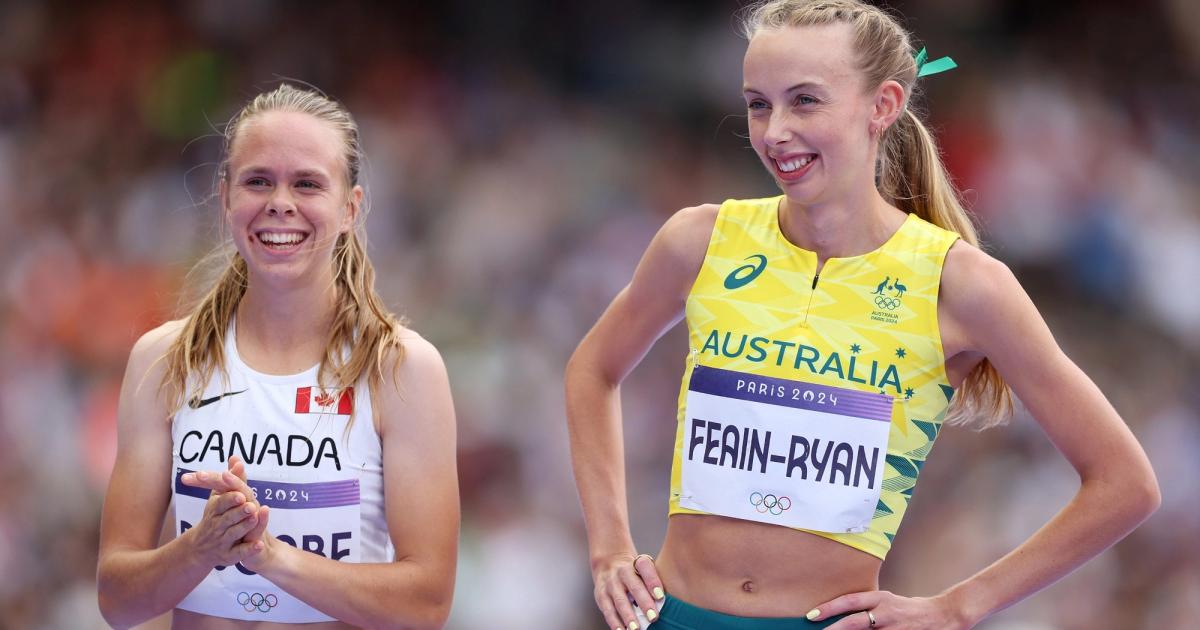
Courtesy WVU Athletics
What makes it more impressive is that in the Canadian system, many of the top runners race throughout the summer and only transition to cross country in August. So while other NCAA athletes might have been building a base since June, Ceili has been racing track.
Right. There’s a bit of a fall-off once you leave championships, whether it was extremely successful or just an average experience for you. There’s a letdown after it. You’re tired mentally, emotionally, and physically. Yet, a number of Canadian women competed this summer and are running incredibly well this fall. Young women like [Florence Caron] from Penn State or [Chloe Thomas] from Connecticut—boy, they’re running well. I watched the two of them run 15:30s in a very tactical race at the Canadian Championships. So, it’s no surprise they’re excelling now.
Let’s touch on your coaching philosophy. Can you share about your coaching style and how it’s evolved over the years?
When you first start coaching, you think you know everything—but you don’t. I was fortunate to have a strong men’s program early on. A few years later, I started recruiting Canadian women. That began in the late 90s—fall of ’97, I think.
The backbone of my philosophy is creating a club atmosphere within the NCAA. If you have the right culture, you can treat young men and women as individuals. We haven’t nailed it every year, but most years training like a stereotypical European or Canadian club has worked for us.
In the early days, I didn’t have much scholarship money, so I learned to think in terms of nine months instead of nine weeks. I also believe that a cross country-only focus limits an athlete’s potential. Programs should embrace all three seasons. I love outdoor track—that was my first love, which is rare for a cross country coach.
At West Virginia, we don’t train together everyday. Some women text each other to meet up; others run solo. My friends often ask, “How do you know they’re running?” I just know. And I’m available in town whenever they’re typically running.
The philosophy is we’re going to work hard twice a week and run long almost every week of the year if we can get it in. The rest of the time we're building mileage. Some double, some cross train, and others have low mileage. I've had women running 90+ miles [per week] and some around 30 [miles per week]. It's tailored to them individually. My hope is that we can eventually have them all on the same page with double runs, consistency, and accountability.
I might have four workouts on a Tuesday and a Wednesday–one workout both mornings and one workout both afternoons. A very large percentage of my team shows up to watch the other two or three practices if they can. That’s one way that we're able to pull off the culture part.
For instance, if it's possible that Ceili can be at a practice, she will bike five miles to a rail trail to watch her teammates train. She may only get to watch a third or two-thirds and then will have to bike to class to go do her thing. I think when you have that love and that level of caring for each other, it doesn't have to be about creating 12 clones of each other.
I think everybody came from a level of individualism where they were the best on their team and now they need to accept not being varsity or being one of the top runners. I think that takes time for some. But I'm never going to quit on somebody here at West Virginia. I will stick with them for the duration of their career and they know that. I think that's comforting.
I have a five-year-old little girl. When she’s 18 and going off to university, I have a subconscious list of who I would want her to be coached by. I hope many of my friends and my peers would have me on their list. I think that’s the way you can pull off culture: being an individual and still going to war for your team.
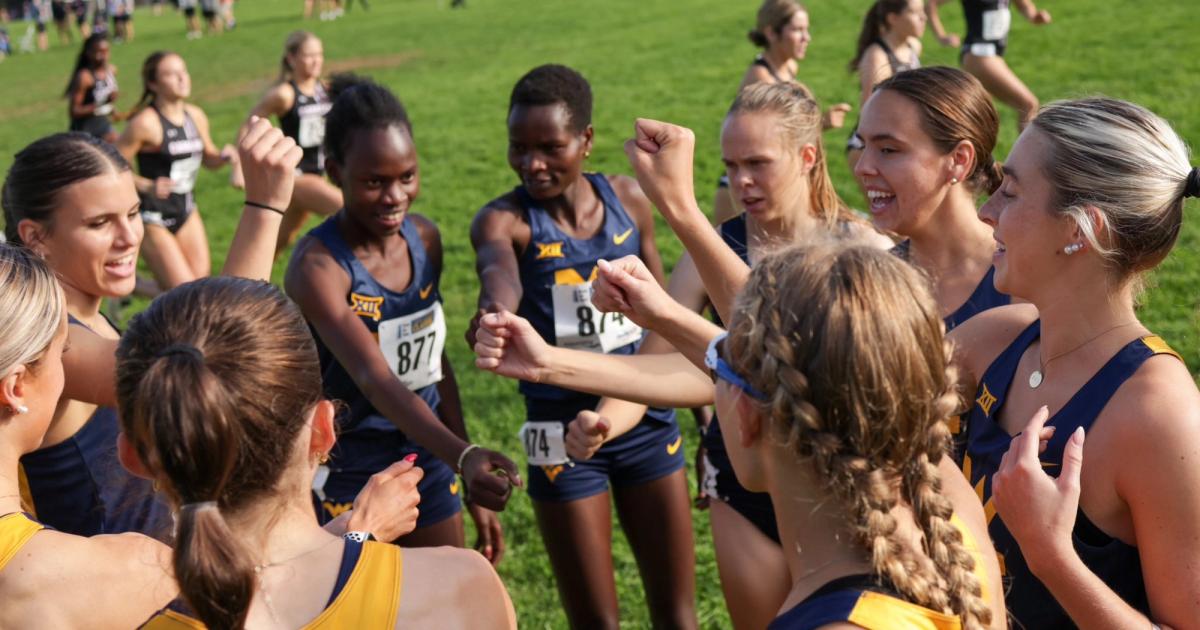
Courtesy WVU Athletics
It's clear that the team has a positive atmosphere and the women are in it for each other. Can you talk more about how you build team culture and what you value most in that process?
We're not perfect. If you asked every team I've ever coached, they'd tell you they know each other's drama. We have our drama here at West Virginia just like any other team. But I think it's my job—and my coaching staff's job—to manage that and foster the right environment.
I'm very fortunate to have an incredible coaching staff. One of my assistants ran in this program during the '90s and held school records. Another assistant ran in the 2000s and went on to become an alternate for the Olympic team in the marathon; she's now back as my Director of Operations. Another coach was part of the team in the early 2010s. Each of them had different experiences with their teammates and the program and I think their perspectives are invaluable for shaping our culture.
As long as my team knows they’re spoiled rotten, as are 99% of the young adults in college running right now, then we’re off to a great start. They might not have as much compared to “x” school, but they’re spoiled compared to athletes 10, 20, or 30 years ago. That’s the first thing you have to do to be able to get along with me: acknowledge that you have a great opportunity in front of you. If they can recognize that, we’re off to a great start.
Another thing is I make myself accessible for one-on-one meetings anytime it’s needed. Sometimes, it’s for venting, sometimes it’s because they’re struggling, and other times it’s a discussion about their potential. We sit down in a coffee shop, wherever that may be. Currently it’s McDonald’s because most of the team lives about a 90 second walk from there. We sit in there and talk about the good, bad, ugly, whatever needs to be changed, or whatever’s working really well.
If they feel lonely or like they’re not performing, they tend to leave these meetings feeling a little better about themselves. I think personal relationships like that are invaluable–to know that away from home, someone is in their corner. If everyone is willing to adjust—whether it’s the athlete making changes or me as a coach—then we can achieve the outcomes we all want.
I love that you have these one-on-one chats at McDonald's. Usually it's in the coach's office or after practice, but nope—you go to McDonald's.
I haven’t had a meeting in my office in probably ten years. Sometimes we’ll go to a fancier coffee shop in town, but McDonald's is really convenient and quick for them since a lot of them live nearby.
Time management is everything. One reason I don’t schedule practices every single day is because of their lifestyles. Right now, we have three or four women in medical school who recently graduated from West Virginia. Student-athletes in our sport tend to be bright and ambitious, and managing their time is everything.
Some coaches have morning practices, and while that’s a great way to structure the day, I personally don’t like it. I don’t trust that they’re going to bed at 9:30 p.m. or 10:00 p.m. to get their sleep. Not that I don’t trust them as humans, but life gets in the way and you need to adjust. Wonderful programs train in the morning, but I think it’s better to let them sleep in and get their runs done later. To go back to my club comment at the beginning, most club athletes train on their own, and during that time, they learn to dream, reflect, and focus on their upcoming races. That’s harder to do when you’re running with a group and just chatting about whatever. Sometimes you need space.
Anyway, a lot of these one-on-one conversations happen with the athletes who might be struggling. Usually, the top athletes don’t need much attention—they’re getting it done and are on the same page with you. It tends to be those who feel a little lost in the program who had a lot more success in high school. You have to help them find that again.
You mentioned that you have athletes on the team who are currently in medical school. That’s amazing! It’s somewhat uncommon to find a program where academics are just as much of a priority as training, along with having a flexible training structure.
It’s unique, but it’s not without its challenges.There’s value in having 10 or 15 athletes training together daily, warming up, cooling down, and going to war together. It’s definitely backfired occasionally. But I think at the end of an athlete’s four or five year clock, I’m most comfortable with that process.
For example, we work out on Tuesdays or Wednesdays, depending on the athlete's schedule. It’s not about blocking off a rigid four-hour period but about finding a time that works. When I first started coaching, I wasn’t as flexible—it was “this is the workout day; figure out your academics.” Now, I adjust based on what’s best for each athlete.
Take someone like Ceili, for example. The week of a big race, we don’t have her do a workout. It’s not about tapering or staying fresh—it’s just that her training is already at such a high level that we might overdo it. So, we adjust.
I think there’s a lot of ways to get it done. Some might work out on Tuesday, others on Wednesday. Even during these staggered workouts, the team comes together. If some athletes work out Tuesday and others Wednesday, those not training will still show up to cheer. They’ll go for their own runs and then cheer for their teammates. It’s a different approach, but I think it creates a positive team atmosphere.
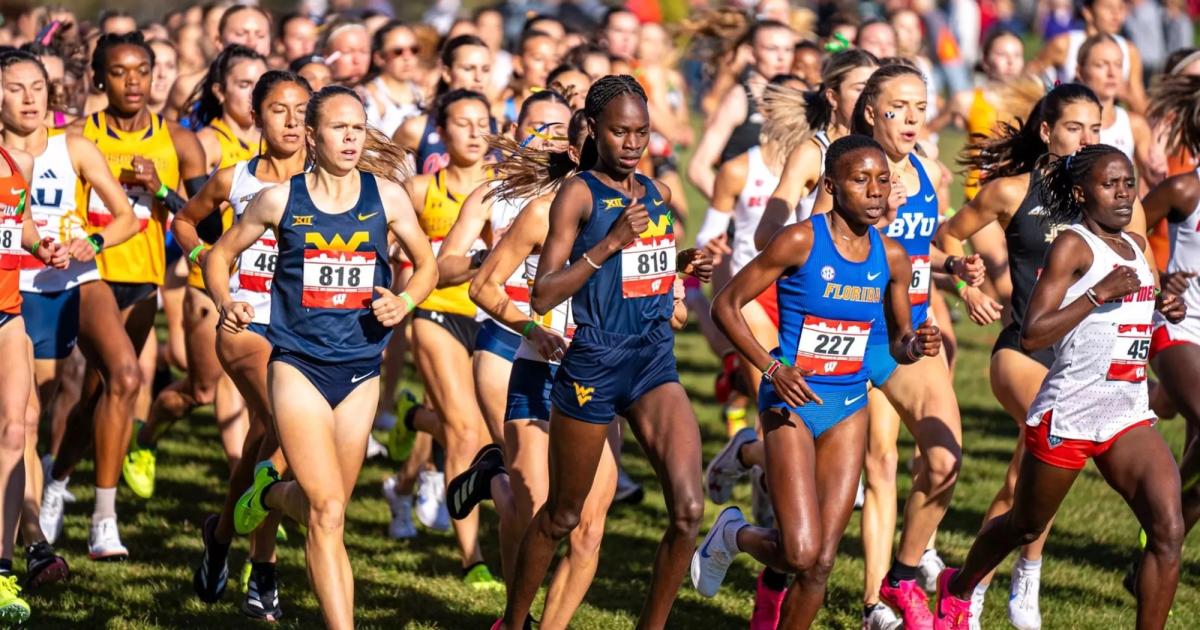
Courtesy WVU Athletics
Something else you mentioned earlier is how athletes today have far more resources compared to ten years ago. Can you share your perspective on how college athletics has changed and how that shift has impacted programs?
I think one major shift is the widening gap between programs in terms of resources… Schools with more resources—whether it’s cost of attendance, Alston money, resources, budgets–are pulling further ahead with others struggling to keep up.
Some of my coaching friends are dealing with massive budget cuts—$200,000 or $300,000. Half of the schools out there don’t even have that budget to begin with. It’s just not a level playing field and I think there are probably better ways to fix some of these issues.
Student-athletes at West Virginia and many other schools have all these catered meals—breakfasts, lunches, and dinners—something they didn’t have for 75 years. If we’re in a financial crunch right now, I think there are certain things that should go before others. That might save the sport at some universities.
At the end of the day, our sport is simple. You need a good trainer, medical staff, surfaces you can train on to keep you healthy, a dedicated and loyal coach, and some talent. If we all cloned each other and had ten robots, and we all got to coach the same ten people, the NCAA rankings wound’t be the same as they are today. There are so many phenomenal coaches out there who just don't have scholarships in distance running. They just don't have the opportunity that many of us have.
I think there’s a pecking order list of things that could’ve been chopped–and it’s only going to get worse… In a make-believe world, I'd like to see everyone on the same page with the same resources and find out who the best is.
That’s an important perspective. It’s interesting to think about how the difference in resources affects opportunities for both athletes and coaches. But to wrap things up on a positive note, what are you most looking forward to most for the rest of the season?
*Note: our interview was recorded a few days prior to NCAA Regionals
Right now, my biggest hope is that if someone asks me on Friday, “Is your team healthy?” I can say yes. That’s my number one priority.
The Mid-Atlantic Regional will be extremely competitive. Teams like Princeton—who just won Heps and are more fired up than they’ve been in years—are going to walk in looking to upset teams. Villanova might be down one runner, but if she’s back, they’re a very strong program. Penn State has a tremendous front runner and their pack is as close to her as my pack is to our top runner.
We’ve had some great performances so far this season—an A at Louisville, an A at Wisconsin, and another A at the Big 12 Championship. If you’re lucky enough to go five meets in a row with A’s, then you’re going to beat teams. For now, it’s been fun and we’re certainly hoping we can stay healthy and get out there another time.
Let’s keep those A’s coming!
That’s the goal!
Thank you so much for joining us and best of luck on the rest of the season!
___________________
Keep up with all things track and field by following us across Instagram, X, Bluesky, Threads, and YouTube. Catch the latest episodes of the CITIUS MAG Podcast on Spotify and Apple Podcasts. For more, subscribe to The Lap Count and CITIUS MAG Newsletter for the top running news delivered straight to your inbox.
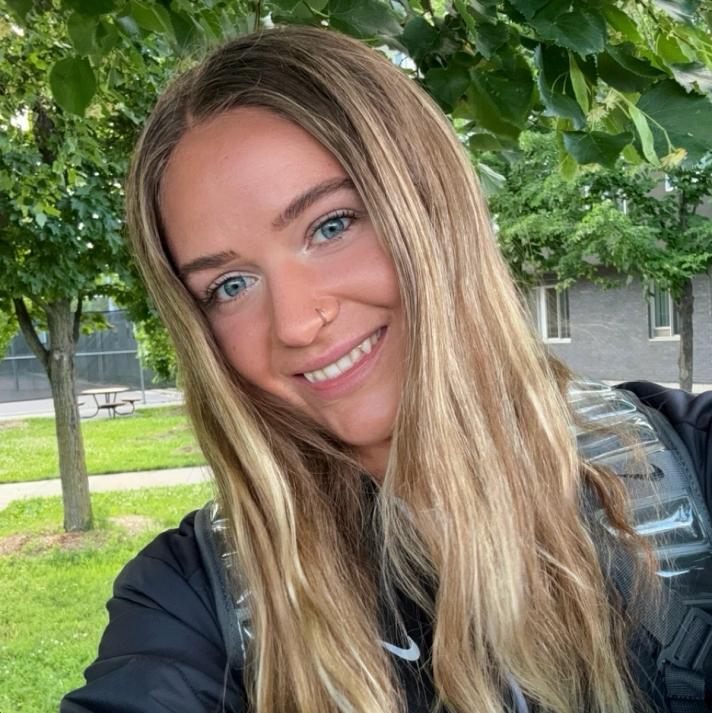
Jasmine Fehr
Jasmine Fehr produces the CITIUS MAG Podcast, manages our website, and shares content across our socials. She’s a marathon runner training in Flagstaff, Arizona. Her collegiate running career spanned the University of Portland and the University of Tennessee, where she earned a Bachelor’s degree in Psychology and Master’s degree in Communications.
